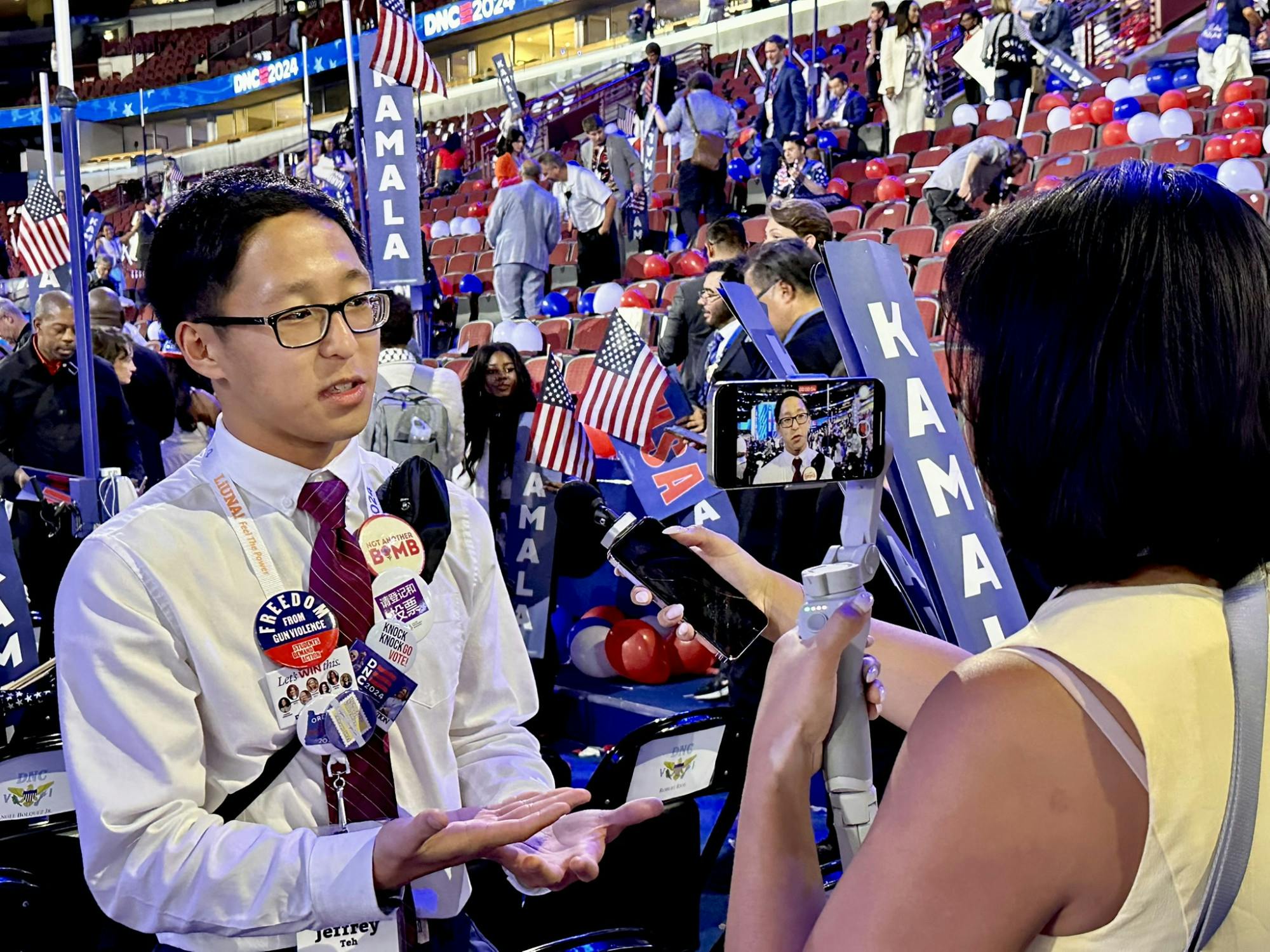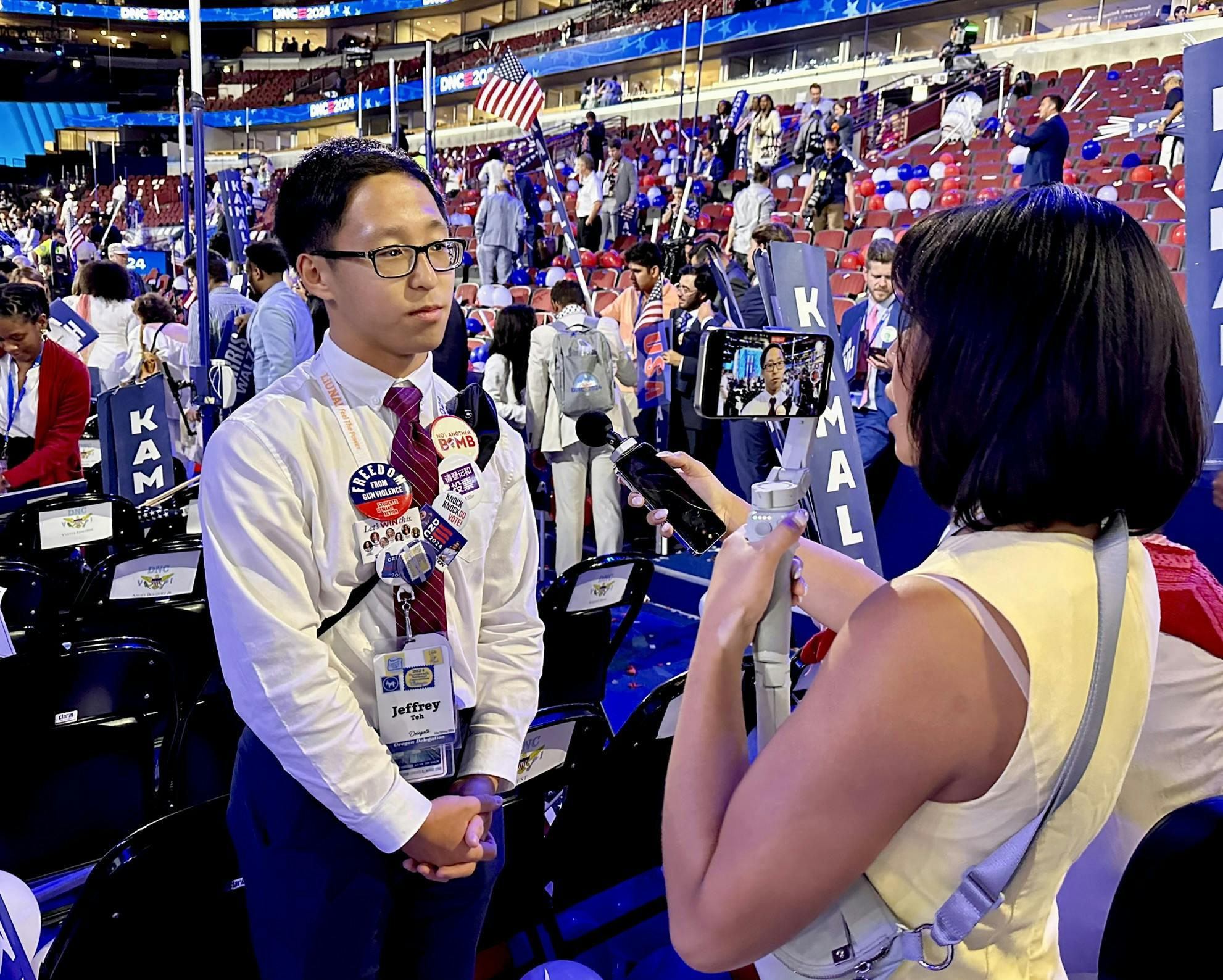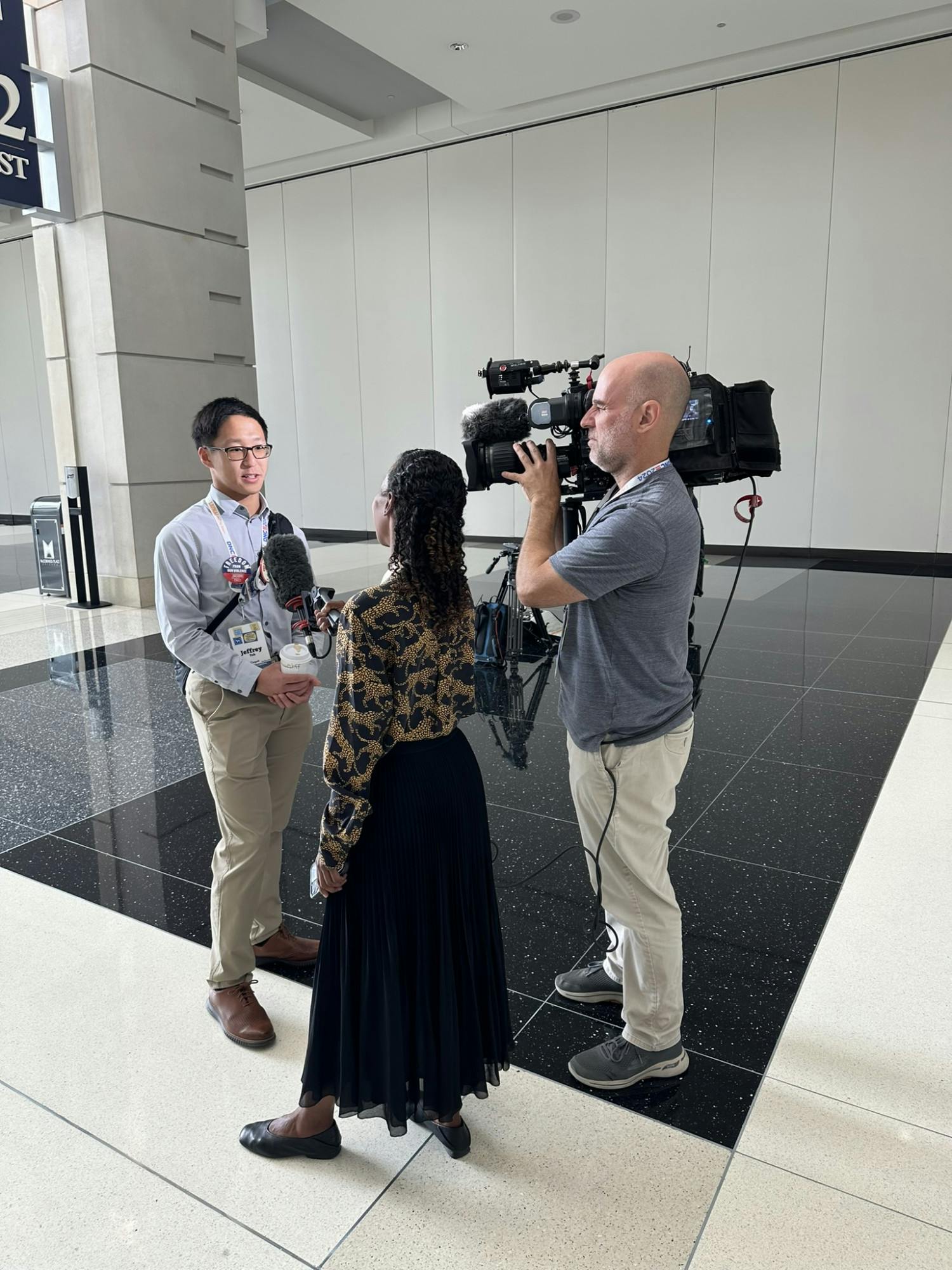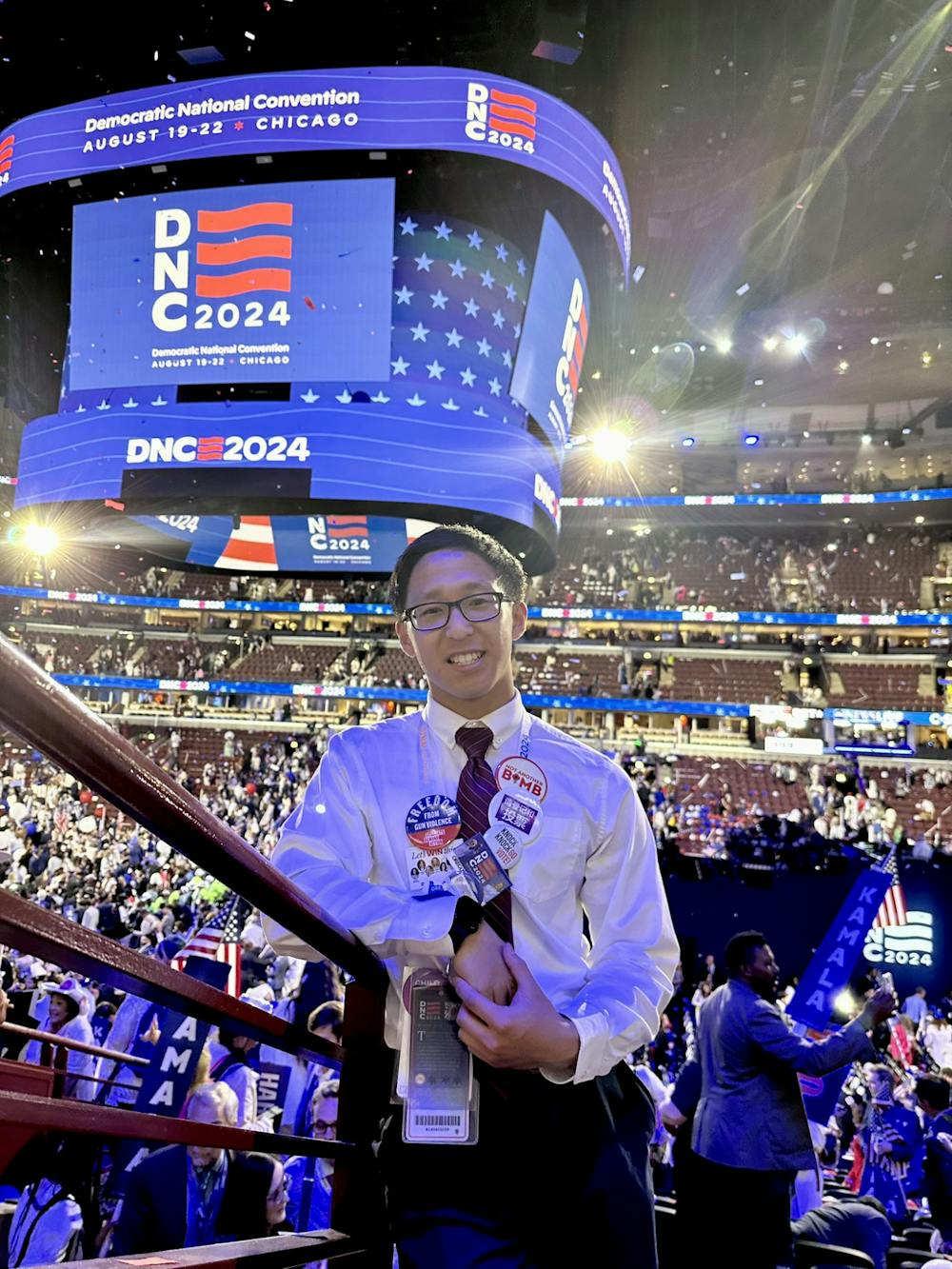
From collecting petition signatures for a new fire station to calling my representative in Congress, political participation has been a tradition in my family for as long as I can remember. Voting in every special, midterm and presidential election has become a given. But this year, things are different. The choice for me should be simple: I’m a Democratic National Convention (DNC) delegate who has helped elect progressive candidates up and down the ballot my entire life. Why would I have any doubts about filling in a circle next to Kamala Harris and other Democrats' names?
Because these are no ordinary times.
While failing to address our inundated asylum system or the looming federal deficit, American policymakers have instead worked overtime to preserve the pipeline of weapons sales to Israel. The DNC refused to invite a Palestinian speaker onstage to speak at the convention, and the Harris-Walz campaign has largely avoided an overt policy shift on the wars in Gaza and Lebanon. I’d guess that if you ask a member of the Political Science faculty at Middlebury, they’ll tell you this makes perfect sense. A plurality of Americans support American military aid to Israel and I believe no major party candidate with a desire to win would ever seriously consider supporting an arms embargo.
This bipartisan intransigence leaves many young people like me with a crisis of conscience. Do I have to compromise my morals in voting for a candidate whose publicly stated policy violates one of my fundamental beliefs? Is supporting a third-party candidate “throwing my vote away”? Is not voting even worse?
Let’s assess the alternatives. If I don’t fill in the circle next to Kamala Harris on my ballot, who else would I vote for? Jill Stein and Cornel West have both campaigned on the Biden-Harris administration’s complicity in the suffering in Gaza, but they have no political experience nor legitimate chance at victory. Donald Trump has made grand promises to bring historic peace to the Middle East, but his administration withdrew from the United Nations Human Rights Council and legitimized illegal settlements in the West Bank. Simply put, Kamala Harris is the only palatable choice on a largely unappetizing menu.
It’s critical to consider what refusing to vote entirely or in a specific race means for political representation. In such tight races from the presidential to the local level, with gun control, Gaza, climate change, and abortion on the ballot, relinquishing your say over who represents you and your values is tantamount to letting others determine how the government influences your life. Refusing to vote is the ultimate sign you’ve lost faith in the political system. You no longer trust the people who represent you, but you also no longer believe in the government to tackle the issues you care about the most. Voting at all — even writing in yourself — is better than abdicating some of the only political agency you have left. If you have even the slightest glimmer of hope that your government can make progress on the causes you care about, you ought to use your vote to choose who represents you.
The moral quandary we face is not so much about whether to vote or who to choose. Instead, it’s with ourselves — whether we are comfortable with compromise in an imperfect world or if we are so disillusioned with the system that we refuse to participate entirely. In all likelihood, your abstention may cause more guilt than your unpalatable choice.
Here at Middlebury, I know we believe in justice for the Palestinians of Gaza and the West Bank. I know we believe in taking action on climate change, which poses an existential threat to us all. I know we believe in a world where the voices of young people are heard in the halls of power.
Achieving those goals though, takes more than protests, op-eds or even college divestment from arms manufacturing and fossil fuels — it takes action from the policymakers who represent you. If you still have hope that the U.S. government can stop selling arms to Israel, invest in renewable energy over fossil fuels, or improve the lives of everyday Americans, use your voice by voting on Nov. 5. Your conscience will thank you.






